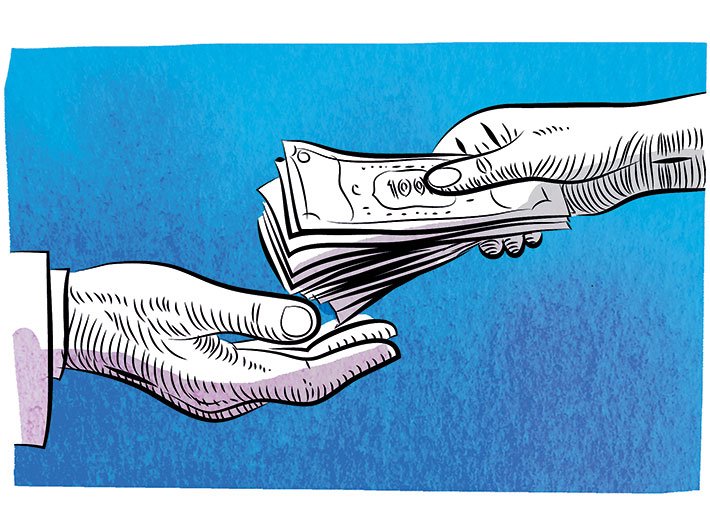Important to understand if these programs break the cycle of intergenerational poverty, or whether the benefits simply evaporate when the money runs out
As cash transfer programs continue to grow as major vehicles for social protection, it is increasingly important to understand if these programs break the cycle of intergenerational poverty, or whether the benefits simply evaporate when the money runs out, wrote Berk Ozler, senior economist, development research group, World Bank.
In a blog “Do Cash Transfers Have Sustained Effects on Human Capital Accumulation?” Ozler said that cash transfers are great – lots of people are telling you that on a continuous basis. However, it is an open question as to whether such programs can improve the wellbeing of their beneficiaries well after the cessation of support.
The extant evidence on this question is growing, albeit still scant, and it is not particularly promising. For example, a recent paper by Araujo, Bosch, and Schady (2016), evaluating the 10-year effects of Nicaragua’s Bono de Desarollo Humano cash transfer program, concludes that “…any effect of cash transfers on the inter-generational transmission of poverty in Ecuador is likely to be modest.”
Citing another recent paper, co-authored with Sarah Baird and Craig McIntosh, Ozler referred to the effects of a cash-transfer experiment in Malawi more than two years after it ended, tracking a broad range of outcomes for females aged 18-27.
Our earlier work has demonstrated the short-term effectiveness of cash transfers in improving school participation and test scores as well as reducing the incidence of pregnancy, marriage, psychological distress, and sexually transmitted infections during adolescence, indicating the possibility of finding longer-term improvements in well-being as young adults. In the new paper, following a pre-analysis plan, we first examine human capital accumulation, marriage and fertility, labor market outcomes, and empowerment among the beneficiaries to assess the persistence of the short-term effects.
Referring to the findings, Ozler said that the short-term improvements in the unconditional cash transfer (UCT) arm observed during the program failed to translate into increased welfare in the longer-run. Substantial reductions in teen marriages, total live births, and HIV infections, as well as improvements in psychological wellbeing and nutritional intake observed at the end of the program, were no longer apparent two years after the end of the intervention.
Worse, in this group, the end of the cash transfer program was immediately followed by a marriage and baby boom among the beneficiaries, who reported lower levels of empowerment and had husbands with lower cognitive ability compared with both the CCT and the control groups. Notice that the large “baby boom” apparent in the UCT group 10-12 months after the end of the cash transfer program, indicating a spike in pregnancies immediately after the cessation of financial support, is preceded by a similarly-sized “marriage boom” only a few months earlier, wrote Ozler in his blog hosted on the World Bank website.
However, there is some good news: consistent with improved physical and mental health during the program, we find evidence of improved height-for-age z-scores (HAZ) among children born to UCT beneficiaries during the program. Such effects are not present for babies born after the UCT program ended, even if they were in utero during the program.
Conditional cash transfers (CCT), on the other hand, caused sustained effects on school attainment, incidence of marriage and pregnancy, age at first birth, total number of births, and desired fertility – but only among the pre-specified stratum of adolescent females who had already dropped out of school at baseline: CCTs were highly effective in allowing a very large share of this group to return to school.
The takeaways for the design of cash transfer:
Fleeting effects of UCTs: Only two years after the end of the program, UCT beneficiaries are, in most respects, in a position indistinguishable from where they would have been in the absence of cash transfers. Palliative benefits of small and frequent unconditional cash transfers are uncontested and reinforced by our study, but the idea that they can contribute to a sustained improvement in welfare over the longer-run is unproven and not supported in our data.
Cash transfers for females of childbearing age: The promising (if only suggestive) evidence of the positive effect of UCTs on children’s height provides an additional reason to consider providing basic UCTs to adolescent females. Indeed, Currie and Almond (2011) have suggested that targeting transfers towards women of childbearing age may be beneficial in the U.S. context, so as to maximize benefits to children in utero. This form of targeting would suffer from remarkably little ‘leakage’ in the Malawian context; two thirds of women aged 20-24 gave birth by age 20 and virtually all females have started childbearing by age 25 (National Statistical Office and ICF Macro 2005).
